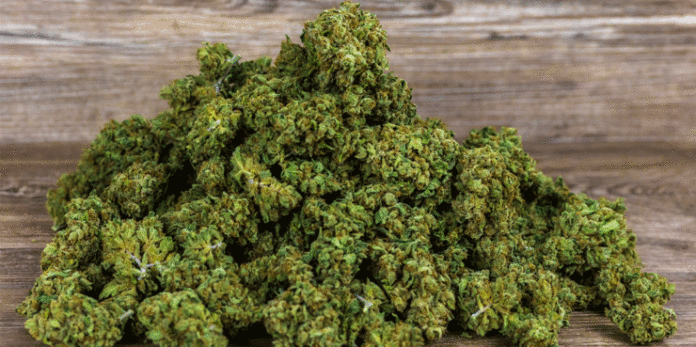A few years ago, CBD was all the rave. These products were littering retail shelves everywhere and consumers loved their alleged health benefits. Now, Delta-8 and Delta-9 THC seem to be taking over.
Much like marijuana, the legality of Delta-8 and Delta-9 THC depends on which state you live in. For all states, to be federally legal, the THC content must be at or below the federally regulated amount of 0.3 percent of dry weight. Some states also require Delta-8 to come from hemp instead of marijuana.
What is Delta-8 THC?
According to the Food & Drug Administration, Delta-8 THC is a psychoactive substance found in the cannabis sativa plant, of which marijuana and hemp are two varieties. Delta-8 THC is one of over 100 cannabinoids produced naturally by the cannabis plant but is not found in significant amounts. As a result, concentrated amounts of Delta-8 are typically manufactured from hemp-derived CBD.
It’s important for consumers to know that Delta-8 THC products have not been evaluated or approved by the FDA for safe use in any context.
What is Delta-9 THC?
Similarly to Delta-8, Delta-9 THC is a psychoactive substance also found in the cannabis sativa plant. Delta-9 THC also has the same chemical formulation as Delta-8 THC, except that one of the carbon-carbon double bonds is in a different position. The majority of research on THC specifically looks at delta-9, so it’s the most well-studied and well-known form of THC.
Comparing Effects
Even though Delta-8 and Delta-9 THC have many similarities, they both have slightly different chemical structures that result in different experiences:
- Relief from pain. Both Delta-8 and Delta-9 THC have been reported to provide relief from pain.
- Anxiety, panic attacks and paranoia. One notable difference between these compounds is the level of anxiety and paranoia associated with their use. Delta-8 THC has been reported to cause low levels of anxiety and paranoia compared to Delta-9 THC.
- The onset of effects. The length of time it takes to feel the effects also separates Delta-8 and Delta-9. Delta-8 works slowly and gradually as it eases users into a more mellow state. Meanwhile, Delta-9’s onset is more rapid and instantaneous.
The FDA received 104 reports of adverse events in patients who consumed Delta-8 THC products between December 1, 2020, and February 28, 2022. Of these 104 adverse event reports:
- 77% involved adults, 8% involved pediatric patients less than 18 years of age and 15% did not report age.
- 55% required intervention (e.g., evaluation by emergency medical services) or hospital admission.
- 66% described adverse events after ingestion of Delta-8 THC-containing food products (e.g., brownies, gummies).
- Adverse events included, but were not limited to: hallucinations, vomiting, tremor, anxiety, dizziness, confusion and loss of consciousness.
Comparing Manufacturing Methods
Because the natural amount of Delta-8 THC in hemp is very low, additional chemicals are needed to convert other cannabinoids in hemp, like CBD, into Delta-8 THC (i.e., synthetic conversion). The FDA reports that some concerns with this process include:
- Some manufacturers may use potentially unsafe household chemicals to make Delta-8 THC through this chemical synthesis process. Additional chemicals may be used to change the color of the final product. The final product may have potentially harmful by-products (contaminants) due to the chemicals used in the process, and there is uncertainty with respect to other potential contaminants that may be present or produced depending on the composition of the starting raw material. If consumed or inhaled, these chemicals, including some used to make (synthesize) Delta-8 THC and the by-products created during synthesis, can be harmful.
- Manufacturing of Delta-8 THC products may occur in uncontrolled or unsanitary settings, which may lead to the presence of unsafe contaminants or other potentially harmful substances.
This chemical extraction is called “isomerization,” and is also used to produce Delta-9 THC. Another common method for manufacturing Delta-9 involves extracting it from hemp. This can happen while distilling other cannabinoids, like CBD. Plant extraction is a better option because it doesn’t require the manipulation of other cannabinoids to produce. So, using this method, Delta-9 stays in its original state, leaving no room for legal confusion.
Comparing Consumption Methods
Much like other cannabis products, Delta-8 and Delta-9 THC can be consumed in a variety of ways. They can be smoked as a flower, inhaled through vaping or consumed in edible form. There’s also a wide variety of topicals, capsules, tinctures, edibles and other products.
When choosing between Delta-8 and Delta-9 THC, it ultimately comes down to your personal choice. While both compounds are similar, there are a handful of properties that set them apart. Always be sure to purchase from brands that have their lab results on hand and make sure you are in a safe setting and trying a low dose if this is your first time trying Delta-8 or Delta-9.










